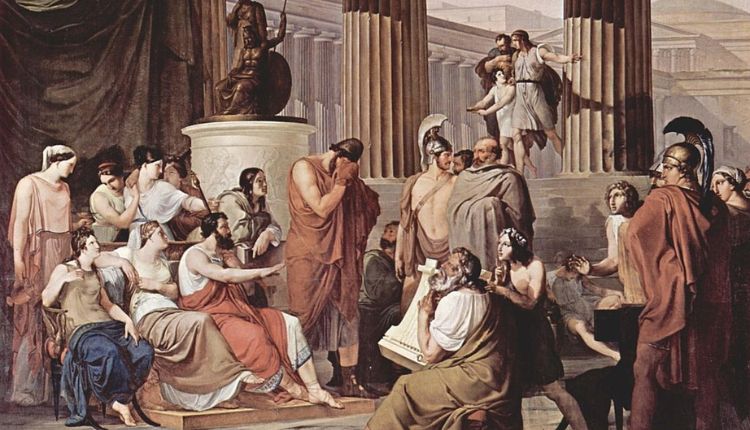which excerpt from the odyssey best shows that the ancient greeks greatly valued the idea of home?In the epic poem, “The Odyssey,” attributed to the legendary ancient Greek poet Homer, one can discern a profound emphasis on the concept of home. The question arises: which excerpt from this epic masterpiece best exemplifies the profound value ancient Greeks placed on the idea of home? Let’s delve into the intricacies of this timeless work and explore the passages that encapsulate the essence of home in the eyes of the ancient Greeks.
Odysseus’ Longing for Home
The journey of Odysseus, the protagonist of “The Odyssey,” unfolds as a captivating odyssey itself. As he faces myriad challenges on his quest to return to Ithaca, the notion of home becomes a prevailing theme. Odysseus, separated from his loved ones, encapsulates the quintessential Greek desire for the warmth and familiarity of one’s abode.
The Symbolic Importance of Ithaca
Ithaca, Odysseus’ homeland, emerges as more than just a geographical location; it becomes a symbol of familial ties, emotional security, and the yearning for the comfort that only home can provide. In Book IX, Odysseus expresses his deep connection to Ithaca, establishing a poignant link between the hero and his cherished home.
Penelope’s Unwavering Devotion
Penelope, Odysseus’ wife, stands as a paragon of steadfastness and devotion to her home. Despite the prolonged absence of her husband, she ardently holds onto the hope of his return, guarding their home against external threats. Her loyalty underscores the significance ancient Greeks attributed to the sanctity of the domestic sphere.
The Weaving of Penelope
Penelope’s act of weaving and unweaving her tapestry in anticipation of Odysseus’ return symbolizes the intricate threads that bind a family and a home together. This vivid imagery resonates with the ancient Greek audience, portraying the domestic space as a realm deserving of protection and preservation.
The Homeric Hymn to Hermes: A Homage to Home
In the Homeric Hymn to Hermes, the divine messenger himself provides insights into the celestial importance of the domestic space. Hermes, born in a cave, yearns for a home among the gods, reflecting the universal desire for a sense of belonging. This divine narrative subtly mirrors the mortal quest for a cherished dwelling.
The Concept of Xenia
Embedded within the fabric of “The Odyssey” is the ancient Greek custom of xenia, emphasizing hospitality and the welcoming of strangers into one’s home. This cultural practice reinforces the belief that the home is not merely a physical space but a haven for communal bonds and shared experiences.
Lessons for Modern Times
The enduring relevance of “The Odyssey” lies in its ability to transcend the temporal and cultural boundaries. In a contemporary context, the ideals of home, family, and hospitality remain paramount. The ancient Greeks’ veneration of these values, as depicted in Homer’s epic, serves as a timeless guide for navigating the complexities of human relationships and the sanctity of the domestic realm.
Conclusion
In the grand tapestry of “The Odyssey,” the threads of home are intricately woven, portraying the ancient Greeks’ profound appreciation for the concept. Through the trials of Odysseus and the unwavering devotion of Penelope, the epic captures the essence of home as a sacred space embodying familial bonds and emotional security. As we unravel these timeless truths, we find echoes of our own yearnings for connection and belonging within the walls we call home.

